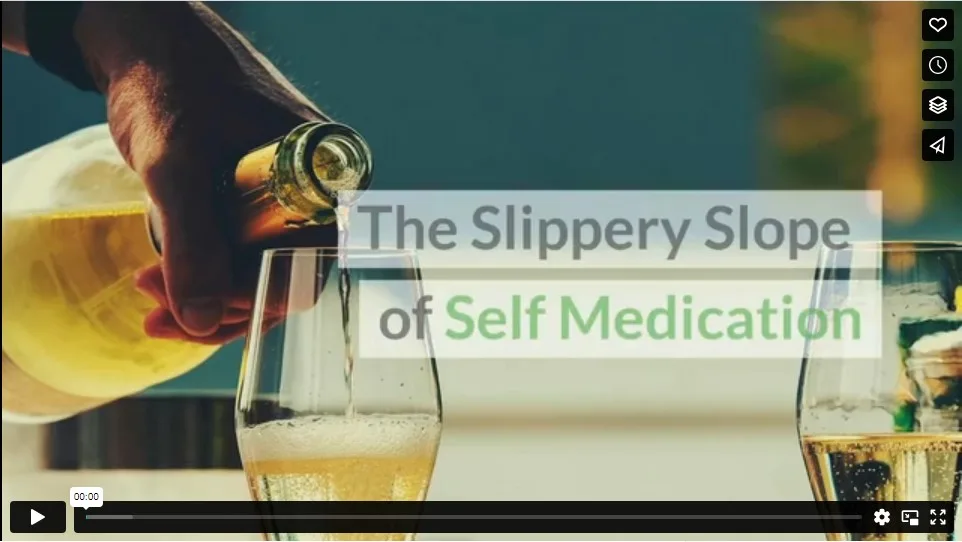You’ve seen movies where a character takes a shot to work up the courage to do something. You may have even done something similar. Or you have a glass of wine to get through a stressful situation, calm your nerves, or simply get through your day. Unfortunately, this is a form of self-medication. You are using alcohol as a coping mechanism to alleviate your mental health symptoms. It’s a common practice, which is why we associate mental health issues with substance use disorders.
People suffering from mental issues like depression tend to self-medicate due to financial and social challenges. You may be aware of your problems but don’t know or have access to a healthier way to cope. Self-medicating offers short-term relief but can worsen your symptoms over time, often leading to other mental health problems, addiction, legal problems, and death.
Types of Self-Medication
There are six main types of self-medication, and you may use a variety of them.
- Alcohol: Since it’s accessible, it’s the most common choice for stress, depression, and anxiety. However, it’s a depressant and will make depression symptoms much worse.
- Nicotine: Prevalent in cigarettes and other tobacco products, nicotine helps you calm your anxiety in the moment and enables you to focus. Long term, your ADHD and anxiety symptoms will worsen.
- Recreational Drugs: With marijuana becoming more accessible, it’s one of the top choices for self-medicating. Some prefer stimulants like amphetamines and cocaine to manage stress, anxiety, and uncomfortable emotions from depression.
- Prescription Drugs: ADHD medications, anti-anxiety pills, and opioid painkillers are frequently used to numb emotional pain, focus, and relax.
- Food: If you’re an emotional eater and tend to eat more when feeling stressed, you need to watch out for binging. While it helps you deal with unpleasant feelings, stress, anxiety, and depression, it will worsen your mood.
- Sex: This is tricky to identify. It’s self-medication if you had an upsetting event and then engaged in a sexual encounter you wouldn’t have otherwise. You act compulsively even if your better judgment is trying to stop you. You may feel guilty or ashamed afterward.
Six Signs You’re Self Medicating
It’s not always easy to identify self-medication because most types are readily available and legal. It’s perfectly acceptable to drink with coworkers after a long workday, have casual hookups, and use marijuana recreationally like alcohol in most states. Unless it’s interfering with your work or home life, the only one that can tell if you’re self-medicating is you. You need to examine your motives and the impact it’s having on your life.
- Do you rely on it when you’re anxious, depressed, or stressed?
- Do you need more and more to feel relief?
- Are your problems multiplying?
- Does it ultimately make you feel worse?
- Do you worry when you don’t have access?
- Are your loved ones concerned about your habits?
Why Self-Medicating is a Problem
While addiction is a significant concern, it’s just the tip of the self-medication iceberg. If you are already taking medication for a health issue, especially mental health problems, alcohol or drugs can interact with them. You can decrease their effectiveness or cause unpleasant and life-threatening side effects. Alcohol and drugs can also worsen your symptoms or cause new ones to appear, triggering new mental health problems. For example, marijuana can be the catalyst for psychosis, while alcohol can trigger depression.
The most significant concern is that self-medication can delay or prevent you from seeking professional help. You should deal with the issue with finality, seeking more effective ways to treat your mental crisis. Self-medication gets in the way of finding a better way to cope.
Finding a Better Way
First, you need to recognize your patterns for self-medicating. Maintaining a log of your substance use and moods will help you identify your habits. Keep track of how you feel when you aren’t self-medicating. You might be able to identify protective factors or activities that are more effective at stabilizing your moods. This log will help change your perceptions about what is really helping you.
Next, you need to get professional help. You may need to seek addiction treatment, but you need a mental health professional to help you learn to cope with your symptoms. Typically, you will achieve this with a combination of talk therapy, medication, and complementary therapies.
You may be eligible for transcranial magnetic stimulation depending on your diagnosis and insurance plan. TMS experts in Lacey successfully treat patients with depression, anxiety, OCD, and PTSD without medication. Work with your doctor to find the ideal treatment regimen that enables you to stop self-medicating.
In addition to professional help, reach out for support through your social network. Take care of yourself by eating a balanced diet, getting regular exercise, getting enough sleep each night, and finding some relaxation practices you enjoy.
You are not powerless. You can stop the downward spiral of self-medication by understanding when you self-medicate and why. You can discover healthier, more effective coping methods that are less costly in the long run. You have the power to improve your overall mood and well-being. If you think you may be self-medicating, speak to your provider before it’s too late.
Infographic
Self-medication is a way for people who, due to various causes such as depression and anxiety, to try to address their mental well-being with short-term solutions. Nevertheless, it can quickly become an issue if not appropriately monitored. This infographic provides information about the most widespread forms of self-medication methods available.

Video

